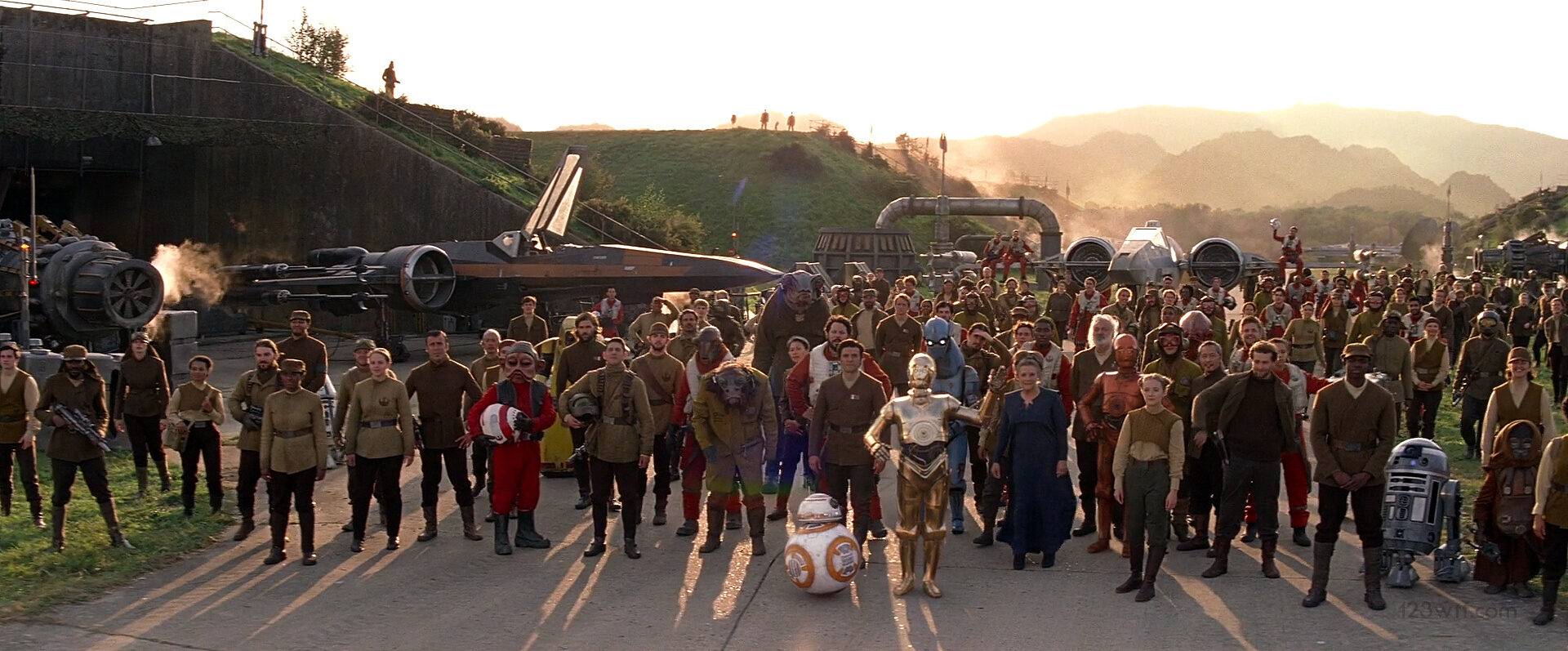Americans adore the fantasy of plucky rebels, ragtag hyper individualists standing up against tyranny. That fantasy (however selectively) resembled our early history. Revolutionaries kicking out the British Empire, Texans fighting to the last man at the Alamo, American blockade runners to Alaska during the Crimean War, and so on. But eventually, the fairy tale no longer resembled reality, but that didn’t stop us from pretending.
Perhaps Star Wars is the best chronological representation in fiction of the USA’s transition from rebels to imperials. George Lucas’s original Star Wars trilogy was an exciting adventure story about the “Rebel Alliance” gallantly facing the overwhelming military might of the Empire and somehow, against all odds, scoring a one-in-a-million victory.
The prequel trilogy a couple of decades later presented an equally interesting idea, and was an overt analogy for the invasion of Iraq. Simply, people get riled up by an unjust war and embrace totalitarianism. Jedi, the watchmen who should have seen the danger coming instead become just as consumed by the war as everyone else until it’s too late. Almost all of the Jedi are betrayed and killed by the army that they themselves endorsed and helped create.
Life imitates art. Republicans embraced the erosion of individual liberty in the name of defeating an enemy at war – then on Jan. 6 2020, they themselves got rounded up into a GULAG. Anyone who disobeyed the plandemic lockdowns was also sent to GULAG. Anyone who protests too aggressively goes to GULAG. As Emperor Palpatine would say, it’s ironic. Republicans could save others from GULAG, but couldn’t save themselves. Imagine obsessing about Stalinist 1940s GULAGs for 50 years just to end up in a GULAG you yourself created. I think it’s a little silly, and they should feel foolish. But Republicans don’t feel foolish, and that’s part of the problem, and why things aren’t going to get better.
When Disney bought the rights to Star Wars and announced a new sequel trilogy, they had a unique opportunity. The last entry of the Star Wars series was open-ended, and a pretty clear way to fuel new conflict. The rebels finally had what they wanted and maybe that wasn’t necessarily a good thing. Really, think about it. Who were the rebel leaders we had gotten to know over three movies? A princess, a space twink, a wookie, a rogue smuggler, a black pirate, and a squid admiral. There’s no evidence that any of them know how to manage a galactic economy, or that they would even get along after there was no longer a common enemy that necessitated cooperation. By definition, separatists against an empire are very often people who don’t want any central government at all and would immediately stop cooperating after victory. So we can somewhat safely assume that a rebel victory would leave the universe a total mess, and many people would start missing the empire. After enough years passed, nostalgia would kick in. Emperor Palpatine and Darth Vader would be remembered as wise and great leaders, in stark contrast to the corrupt and incompetent idiots who replaced them.
But that kind of moral nuance is controversial and risky, which is the last thing a corporate machine wants. So instead, Disney tried to keep the same rebels versus empire premise, even though that premise no longer made any sense. In Disney Star Wars, the galactic government calls themselves the Resistance, which is silly because they’re literally the government so aren’t “resisting” anything. The empire apologists are actually the resistance now – they’re resisting the government. But that premise wasn’t acceptable to Disney writers, and it apparently wasn’t acceptable to audiences either. So instead, the jack-booted government stormtroopers pretend to be rebels and dress like rebels. It’s a powerful government with the aesthetics of a people’s insurgency, which is absurd.
I think the root cause of the problem is that in the Cold War we made strength the basis of morality. The good guys are stronger, have better weapons and technology, and are more prosperous than the bad guys. Whether a country is good or bad is determined by how materially rich they are. Vietnam is poor, so they were bad, Cuba was a small island so they were (and still are) bad, the Soviet Union had a smaller economy so they were bad, and so on.
After understanding that the Disney good guys are an empire pretending to be rebels, it should be clear that this is true in real life as well. Ukrainians are not underdogs in any way – they’re backed by the largest military bloc in human history. The Donbass separatists are the underdogs here, even after Russia started directly supporting them. NATO has 700 million people versus Russia’s 147 million. NATO’s collective GDP is dozens of times larger. The power dynamic is even more absurd with Hamas. It’s a ghetto of 2.3 million people versus all of NATO, that has pledged “unconditional support” to Israel.
Our fantasies no longer have any correlation with reality, they’re the exact opposite of reality.
Ian Kummer

Support my work by making a contribution through Boosty
All text in Reading Junkie posts are free to share or republish without permission, and I highly encourage my fellow bloggers to do so. Please be courteous and link back to the original.
I now have a new YouTube channel that I will use to upload videos from my travels around Russia. Expect new content there soon. Please give me a follow here.
Also feel free to connect with me on Quora (I sometimes share unique articles there).



That would be funny, if it were not so sad and true.
In my experience of interacting online with RipUpThePublican voters, they are not just utterly ignorant but proud of that ignorance. They hug it to themselves as though it were a precious treasure. They are not oy nor interested in knowledge, they hate and fear knowledge, because that would compel them to re evaluate their cherished beliefs, and not being utterly stupid, they know that knowledge will inevitably sabotage those absurd and shaky beliefs. They do not feel foolish because they reject the knowledge necessary to feel foolish.
I’ve not watched any Star Wars movie.
Did you mean to write ‘gallantly’ or ‘valiantly’? 😉
Great catch, I fixed it 😉